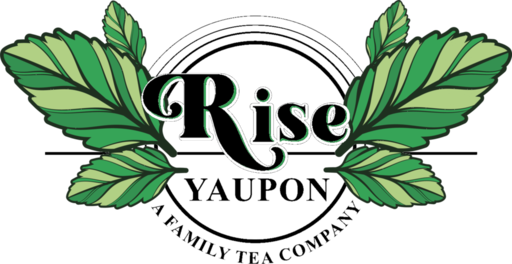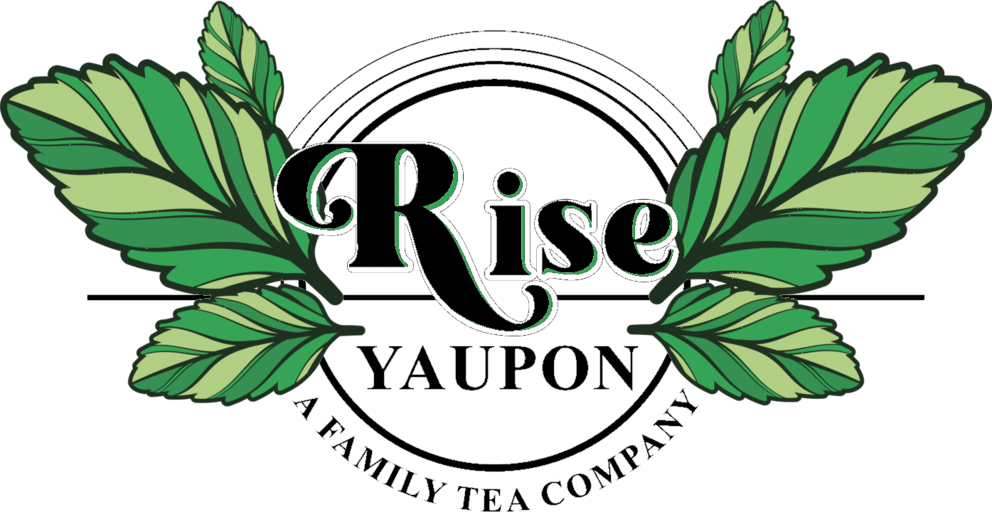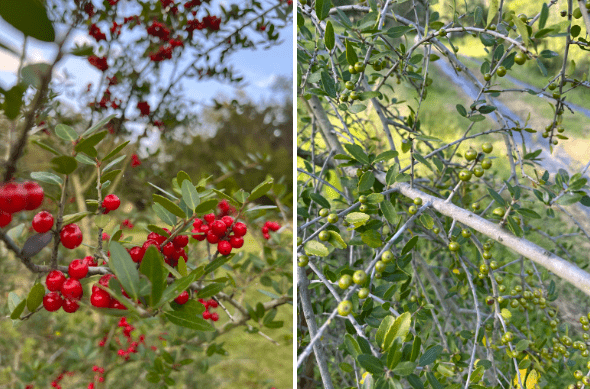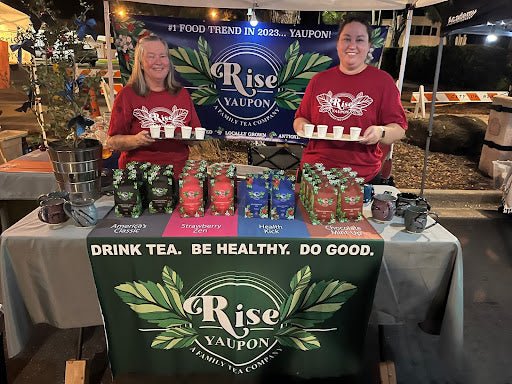Caffeine consumption is part of the daily norm for over 85% of adults - making it the most widely used psychoactive stimulant in the world. For American consumers, most caffeinated products are imported, with a notable exception, Yaupon Holly. Yaupon is emerging from the dustbin of history as a modern, local, great-tasting caffeinated option for consumers.
Understanding Caffeine
Caffeine is a natural stimulant found in the leaves of the Yaupon Holly, Yerba Mate, and Camellia sinensis plants and seeds of the Cacao and Coffea plants, among others. Caffeine impacts the central nervous system of the body, giving users a sense of increased energy and alertness. It is addictive, and overconsumption can lead to increased heart rate, jitters, headaches, and high blood pressure. Most medical professionals recommend a maximum daily intake of 300-400mg of caffeine, which is about 3 cups of coffee or 9 cups of Yaupon tea.
Yaupon Tea: A Native American Tradition
Yaupon Holly was once considered a gift from the god of purity, Yahola. It was revered for millennia and was the center of civilization for the Timucua People. It has the distinction of being consumed over 8,000 years (~3,000 years older than Chinese tea consumption) and was widely traded among Indigenous Peoples. Sadly, Yaupon suffered from cultural erasure and the effects of a successful smear campaign in the 1700s, largely taking it off the map for consumers for over 300 years.
Yaupon Tea's Caffeine Content
The Yaupon industry is making a remarkable comeback, with modern growers and producers emerging in the mid-2010s. Yaupon grows wild throughout the Southeastern United States, and wild trees have variability in the caffeine content, mainly due to the nitrogen levels of the soil. As the industry matures and producers move to farm-grown Yaupon, the soil content and corresponding caffeine levels can be more closely monitored and maintained. On average, Yaupon tea contains 40-60mg of caffeine per cup.
Soil conditions, drying techniques, and seasonality of harvesting can slightly impact the caffeine level, hence the variability in caffeine content.
At Rise Yaupon, we tell our customers, “steep it and keep it.”, due to Yaupon’s notable lack of tannins, you should get multiple cups of great-tasting tea from each teabag. Caffeine is the most heat-sensitive molecule in the leaf, and 90-95% of the caffeine content will be released in the first cup. Your second cup of tea (from the same teabag) will have a minuscule amount of caffeine, and your third cup will have virtually none.
For customers wanting a “decaf” version of their favorite tea flavor, we recommend drinking the second cup.
Our America’s Classic blend has the most caffeine content since it is 100% pure Yaupon Holly. Our Healthy Kick and Strawberry Zen teas contain about 70% Yaupon, and our Chocolate Mint-Up is about 50% Yaupon.
Caffeine in Other Teas
Herbal tea generally refers to teas made without Camellia sinensis, the traditional “tea plant”. As such, herbal teas are usually caffeine-free.
Camellia sinensis is indigenous to China, and today, major growers are in China, India, Indonesia, and Africa. The leaves of Camellia sinensis are processed in different ways, resulting in green tea, black tea, white tea, and oolong tea. Because of this processing, each type of tea has a different caffeine content.
Green tea has about the same caffeine content as Yaupon tea, at around 50 mg per cup. Black tea is the highest, with approximately 90 mg of caffeine per cup. Oolong comes in around 75mg of caffeine, while white tea is around 35mg.
Caffeine in Coffee
Unlike Camellia sinensis, Coffea plants contain caffeine in their fruit, which, when opened, reveal what most would recognize as beans (though not really beans). These beans are then roasted to create coffee. Coffea plants are indigenous to the tropical climates of Asia and Africa but have become an important modern export for South America and the Caribbean.
Caffeine in coffee also has variability - the type of bean, whether Arabica or Robusta, the roasting technique, and the brewing all play a factor. Generally speaking, coffee has 140-180 mg of caffeine per cup. Yaupon Holly tea is roughly ⅓ of coffee’s caffeine.
The Impact of Caffeine on Health
For most people, caffeine in moderation can provide alertness, increased awareness, energy, focus, and sometimes enhanced metabolism. Like any drug, overuse does introduce side effects like jitters, insomnia, heart palpitations, etc. Most doctors categorize moderate use of caffeine as 300-400 mg per day, but caffeine can impact people differently, depending on their unique tolerance. Consulting your doctor about caffeine intake, especially combined with other medications, is the best way to ensure the side effects are minimized.
A consideration for Yaupon is that it has the highest ratio of Theobromine to Caffeine compared to other caffeinated beverages. Other teas and coffees have some Theobromine, but not to the same degree as Yaupon. Theobromine can also act as a mood enhancer and provide awareness and alertness similar to caffeine but without the jitters.
Additionally, Yaupon Holly contains little to no tannin, whereas Camellia sinensis and Coffea have tannin. Tannin can cause an upset stomach, browning of your teeth, and a bitter/astringent taste. People often use creamers and sugars to mitigate the effects of tannin, making coffee and tea more palatable. These introduce other health considerations. Yaupon teas lack tannin, so cream and sugar are used to taste rather than overcome bitterness.
Choosing Your Caffeine Fix
Americans drink over 150 million cups of tea and over 400 million cups of coffee every day, not to mention the sodas and energy drinks that have added caffeine. There is no denying that caffeine is an integral part of many people’s daily life, and it’s great for consumers to have options, but consider the carbon footprint of importing all of our caffeine. Fortunately, Yaupon Holly is American-grown tea - a more sustainable and environmentally responsible alternative to coffee and other teas.
Brewing the Perfect Cup of Caffeinated Yaupon Tea
Yaupon preparation is simple and easy. The leaves are tougher than traditional teas, so they need boiling water to release the antioxidants and caffeine. Since there is no tannin in Yaupon Holly, there is no such thing as “over-steeping” a teabag - one teabag can last all morning, providing great, smooth, clean flavors without bitterness.
Caffeine and Lifestyle
Caffeine is a socially acceptable addiction, and most Americans have a caffeine “fix” daily. The sheer number of coffee/tea shops, convenience store shelves, and grocery store options is proof of the popularity of caffeinated beverages.
The American Yaupon industry is in its infancy, but every year, more and more consumers are discovering the unique taste of Yaupon tea. We at Rise Yaupon are excited to be a part of the new American tea revolution and hope that next time you need a “pick me up,” you reach for a cuppa Yaupon.





Leave a comment
This site is protected by hCaptcha and the hCaptcha Privacy Policy and Terms of Service apply.